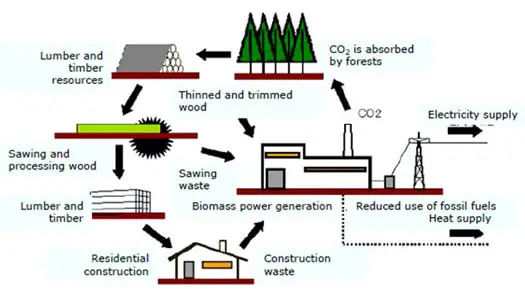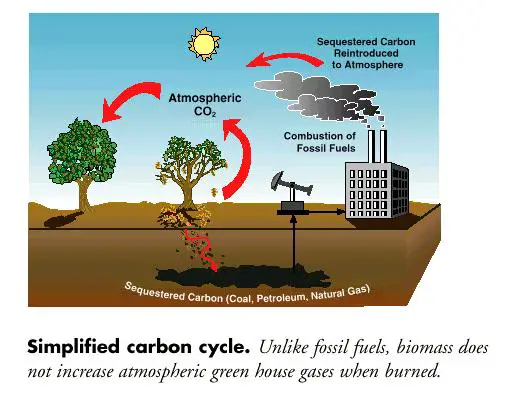Biomass
Biomass is the biodegradable fraction of products, waste and residues from agriculture, including vegetable and animal substances, forestry and related industries, as well as the biodegradable fraction of industrial and urban waste. It provides not only food but also energy, building materials, paper, fabrics, medicines and chemicals. There are many pros and cons of biomass which are discussed in this article.

The advantages and disadvantages of biomass are described below.
Advantages of Biomass
In many ways, biomass is a new source of energy. While wood has always served as fuel for the fire and furnaces and conventional heating methods, progress in terms of biomass energy are steps after that. Now these biomass fuels are harvested and produced in masses and used in everything from engines to power. The major advantages of biomass are as below.
- Exploitation of the resulting product by selling to both domestic market and export. Thanks to its use of relatively clean, energy from biomass it is used in commercial activities such as airlines get tax deductions. This is useful both for the environment and for business;
- Ensure effective environmental protection of population and water, forest and so on. There are no harmful emissions. Energy from biomass, in most cases, does not produce harmful emissions of carbon dioxide. Many energy sources used today are struggling to control carbon dioxide emissions that cause damage to the ozone layer and increase greenhouse gas effect, harming the planet. It is completely natural and has no side effects;
- Recycling of materials. Since living sources, and life is cyclical, these products is never used, as long as the earth will be populated with living things and it’s always someone who transform those parts into energy;
- Disposal of timber from the storage areas;
- Efficient use of wood waste resulting from wood. It was developed as an alternative source to fossil fuels for many homes and helped to decrease addiction.;
- Reduction of storage of combustible materials, considering the volume of a briquette is about seven to eight times smaller than the volume occupied by the same amount of dust before briquetting. Another benefit of this type of energy is that it can take something that is harming the environment and convert it into something useful. For example, the garbage can be burned and converted into energy from biomass;
- Making a simple alternative for heat in the home or in small industrial enterprises;
- Development of new jobs.
Disadvantages of Biomass
Obtaining energy (bioenergy) of biomass is achieved by: direct combustion heat generation, burning Pyrolysis, with generation of syngas (CO plus H2), generation of biogas fermentation (CH4) or ethanol (CH3-CH2-OH), chemical transformations of the type of oil biomass by treatment with alcohol and generating esters, e.g. methyl esters (biodiesel) and glycerol and enzymatic degradation of biomass to ethanol or biodiesel production. The disadvantages of biomass are listed as follow.
- It’s expensive. The costs are bigger because of the care for living things, food and home and all things to consider when trying using animal waste as fuel;
- Consume more fuel. The use of trees and tree products to power cars is ineffective. Not only consume more fuel than the same traditional fuels dealing, but also creates its own environmental problems;
- They need more land. Biomass combustion products need land where they can be burned easily. Since producing the methane gas in the atmosphere can therefore be produced only in areas that are quite distant from residential areas.
In conclusion, all these are issues that need to be considered in determining whether biomass energy is a viable source of alternative energy.


Brilliant Article